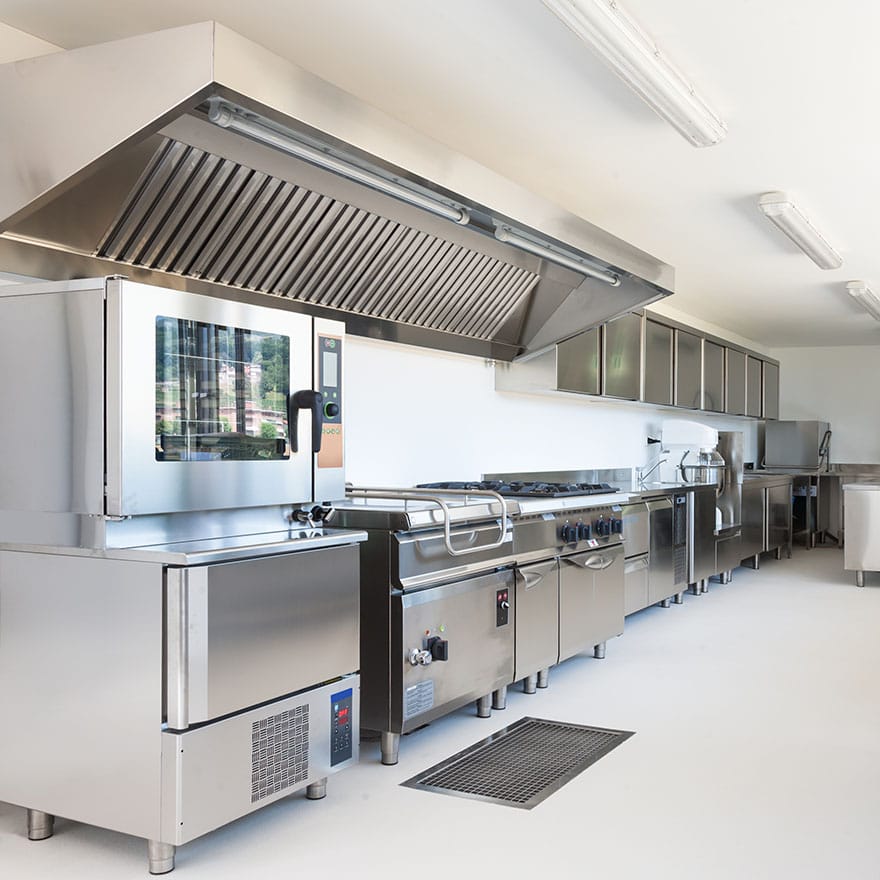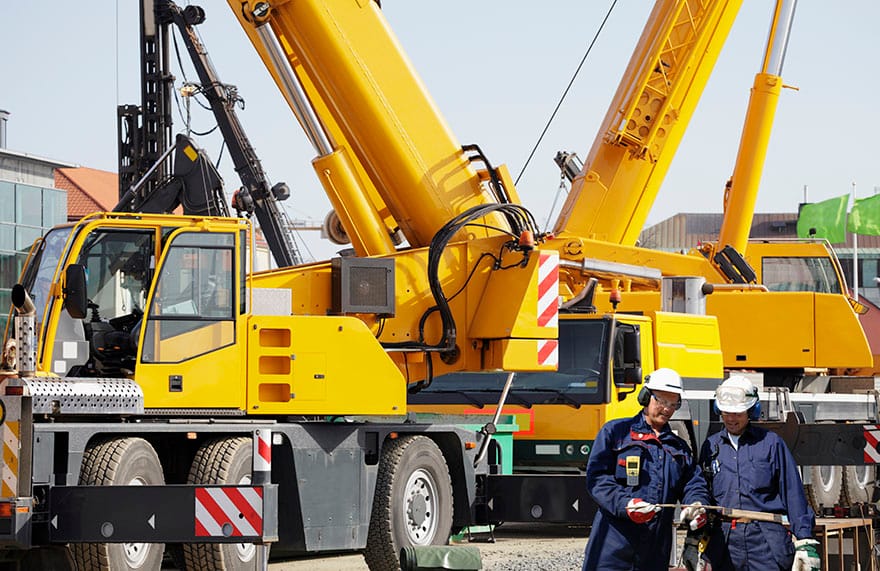Your commercial dishwasher should be cleaning dishes so you have clean and dry dishes. If your commercial dishwasher show problems like it stops cleaning dishes and dishes come out dirty after the cycle, the workload of staff members will increase because a few will have to manually clean the dishes. You can consult a commercial appliances repair technician for a quick inspection and fix.
Additionally, you should know the common reasons why a commercial dishwasher stops cleaning dishes.
Blocked Spray Arm
A common reason for a commercial dishwasher not cleaning dishes is improper loading of the dishwasher.
The first thing to check is if the dishes or utensils are in the way of the spray arm. The spray arm is responsible for rinsing all the dishes. If the spray arm is obstructed by anything, the dishes won’t be rinsed and cleaned.
To check if the spray arm is moving freely, load the rack with dishes and push it inside. Manually spin the spray arm. If it’s not moving, the dishes are restricting its motion. Adjust the dishes until the spray arm can move freely. Mostly, long utensils block the path of the spray arm so keep long utensils in the upper rack where there is no risk of them blocking the spray arm.
You should also check the bottom spray arm as well. It’s usually blocked by pans with long handles. If the bottom spray arm is not rotating when you move it manually, place pans and long-handled items somewhere they won’t obstruct the movement of the spray arms.
Blocked Detergent Dispenser
Similar to the spray arm, the detergent dispenser can be blocked by dishes and utensils keeping the dishwasher from cleaning the dishes. Pizza pans and long utensils can block the detergent dispenser. Clean and maintain your commercial dishwasher to prevent this problem.
Clogged Spray Arm
After checking that the spray arm and detergent dispenser aren’t blocked, you should check for a clogged spray arm. Even if the spray arm is not blocked, if the small holes of the spray are clogged, it won’t rinse the dishes.
Scale buildup is common in small spray holes that can block the holes over time. For checking the spray arm, you should remove it from the dishwasher. Then, use a thin wire to unclog the spray holes of the spray arm.
To prevent this problem or reduce the frequency of the spray arm getting clogged, check your water. If it’s hard water, use a system that can filter out minerals from the water.
Dirty Dishwasher Interior
Dishwasher clean dishes. During this process, the interior of the dishwasher gets dirty. If the interior is not cleaned frequently, you will notice that the dishes that come out of the dishwasher are not completely clean. You may find residue and gunk on the dishes and will have to rinse them manually.
So, clean the interior of your dishwasher regularly to prevent this problem. Cleaning a commercial dishwasher is pretty easy. You can use dish soap and a soft brush for cleaning the appliance. Moreover, you can use a toothbrush where your primary brush can’t get to like nooks and corners of the interior.
Overloaded Dishwasher
Putting more dishes than the capacity of the dishwasher is a common mistake done by staff members who want to clean more dishes quickly. However, this leads to dirty dishes even after the cleaning cycle.
There must be enough space between dishes for water and detergent to get through and clean each and every item on the racks. When a dishwasher is overloaded, water and detergent can’t reach every dish so all or many dishes remain dirty.
Dirty Filter
If your commercial dishwasher has a filter, it should be cleaned frequently for efficient working of the dishwasher. All commercial dishwashers may not have a filter so you should first confirm that your dishwasher has a filter.
Check the label of the dishwasher and search it on Google to find a user manual for the dishwasher. If you already have a user manual with you for the dishwasher, look for components to know if your dishwasher has a filter.
If it has a filter, the next step should be to clean it. Commercial dishwasher filters are typically located at the bottom of the appliance.
- To clean the filter, remove the bottom rack of the dishwasher.
- Look for a circular filter at the bottom. Remove it by rotating it counterclockwise and pulling it out.
- Under the filter you have removed, find another filter. It’s usually visible as a plate on the bottom of the dishwasher’s interior.
- Take a brush or use your hand to clean the hole from where you removed the filter. There may be food or gunk inside it.
- After removing the gunk, clean the filter with warm water and soap. Take your time to clean it completely so you can use the dishwasher freely without needing to clean the filter again too soon.
- Once the plate-like filter and the soft filter both are clean, put them back in their places.
- Put the bottom rack into the dishwasher again.
- Check the dishwasher with some dirty dishes to know if this fixed the problem.
Broken Soap Dispenser
Your commercial dishwasher may not work due to a broken soap dispenser. Before this, make sure that you have checked the spray arm and soap dishwasher for clogs and removed the clogs.
If a soap dispenser is broken, detergent may not be reaching all the dishes, or detergent may be not released at all. You should check the soap dispenser and if its spring is broken, you will need to have it replaced by hiring a commercial kitchen appliance repair Springfield service.
Moreover, you should also inspect the gasket that’s around the soap dispenser. A cracked gasket must be replaced but if you need to clean dishes urgently, apply petroleum jelly on the gasket to survive a few more wash cycles.
Low Water Temperature
Warm water is required to clean dishes so check if the water the dishwasher is receiving is warm enough. Typically, the dishwasher cleans dishes well if the temperature is around 120 degrees Fahrenheit. So, check the settings of your water boiler and set it to 120 degrees Fahrenheit.
However, don’t set the temperature above the mentioned number because higher temperatures can lead to scalding.
Detergent-Related Problems
The detergent you should use for your commercial dishwasher should be made for this purpose. Using low-quality detergent can result in improper cleaning of the dishes. Moreover, using too much detergent can also be problematic.
Moreover, check for water pressure as well. Low water pressure won’t allow enough water for proper cleaning of the dishes. Open faucets and if the pressure of water is low, you should look for a plumber to fix the problem.
Inlet Valve issues
The inlet valve lets water into the dishwasher. Issues with this part will stop the flow of water into the dishwasher. Run the dishwasher and listen to the sound the dishwasher makes. If you hear a hammering sound coming from your commercial dishwasher when it runs, it can be a failing inlet valve. This problem is complex and requires the expertise of a technician.
Conclusion
Check the spray arm, soap dispenser, and filter of your commercial dishwasher if it’s not cleaning dishes. Moreover, consult a commercial dishwasher repairs Fairfax service for a complete inspection.


